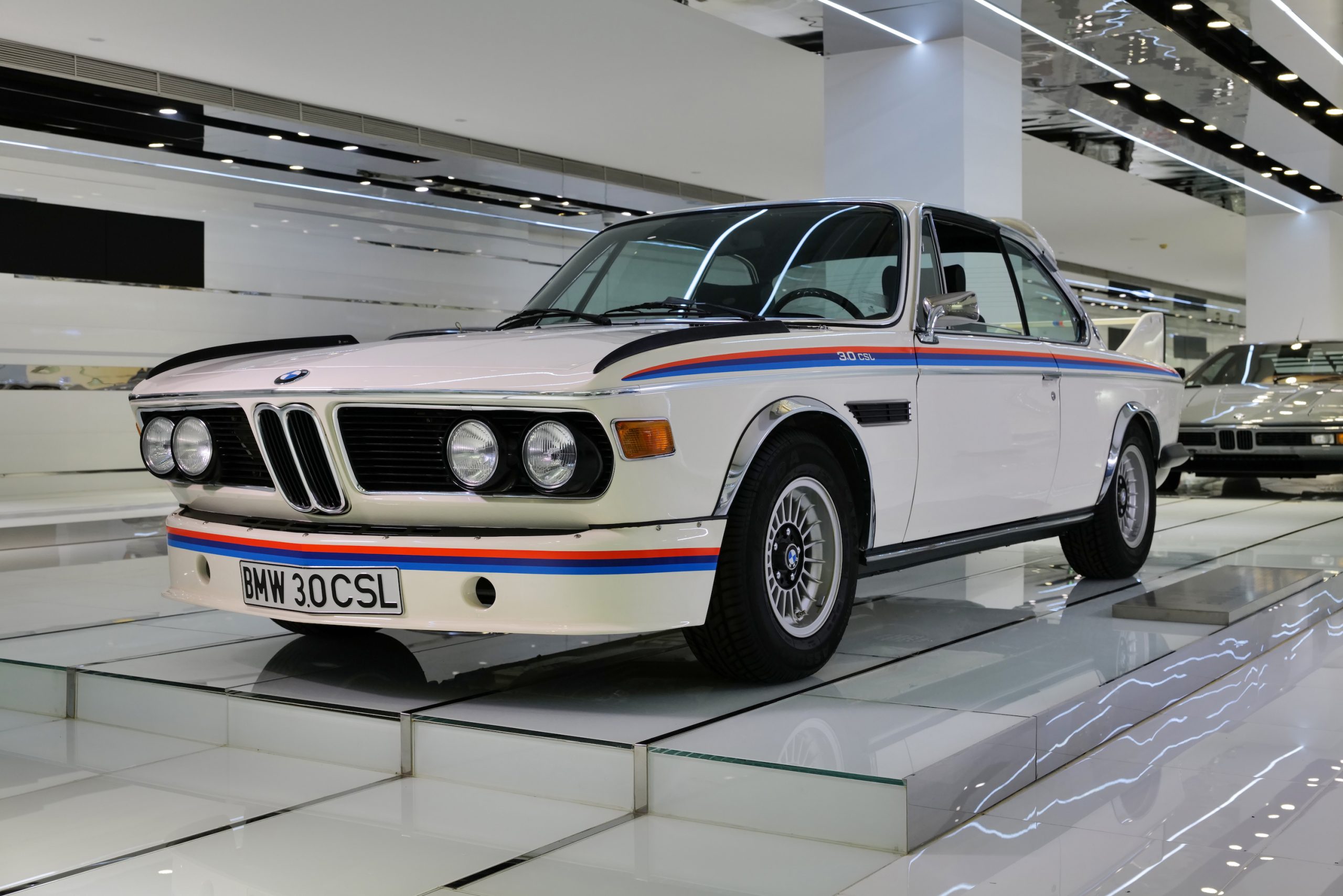Rare Car Brands
Rare Car Brands cars.truckstrend.com
The Allure of Unseen Excellence
In the vast and ever-evolving landscape of the automotive world, where giants like Toyota, Volkswagen, and General Motors dominate production charts, there exists a clandestine realm of extreme exclusivity: rare car brands. These aren’t merely limited-edition models from mainstream manufacturers; rather, they are the products of companies that, for various reasons, produce vehicles in exceptionally small numbers, often with unique philosophies, bespoke craftsmanship, or a fleeting presence in the market.
Rare Car Brands
Defining a "rare car brand" goes beyond mere low sales figures. It encompasses marques characterized by their limited production runs, often hand-built nature, short-lived existence, experimental engineering, or highly specialized market niches. They are the unicorns of the automotive kingdom, sought after by discerning collectors, passionate enthusiasts, and those who value unparalleled exclusivity and engineering artistry over mass appeal. Their importance lies not just in their scarcity, but in their contribution to automotive history – pushing boundaries, preserving artisanal skills, and offering a glimpse into what happens when passion trumps profit margins. Owning a vehicle from a rare car brand is more than just possession; it’s a statement, an investment, and a custodianship of a unique piece of automotive heritage.
The Allure of Scarcity: Why Brands Become Rare
The path to rarity for an automotive brand is multifaceted, often a blend of deliberate strategy, challenging market conditions, and a relentless pursuit of perfection. Understanding these factors is key to appreciating the profound exclusivity of these marques.
- Limited Production Runs: Many rare car brands intentionally cap their production numbers to maintain exclusivity and ensure meticulous quality control. Brands like Koenigsegg or Pagani, while well-known today, operate on this principle, producing only dozens of cars per year. Older, less successful brands might have simply produced few units due to low demand or limited resources.
- Short-Lived Existence: Financial instability, shifting market trends, or a failure to adapt can lead to a brand’s quick demise. Companies might emerge with groundbreaking concepts but lack the capital or distribution networks to sustain themselves, leaving behind a small legacy of unique vehicles. Think of brands that had one or two models before fading into history.
- Bespoke Craftsmanship and Hand-Built Nature: The antithesis of mass production, many rare car brands prioritize artisanal skill over assembly lines. Vehicles are often hand-built to exacting standards, using traditional methods alongside cutting-edge technology. This process is time-consuming and expensive, naturally limiting output. Each car can be a unique commission, tailored to the owner’s specifications.
- Unique Engineering or Design Philosophy: Some rare brands push the boundaries of automotive engineering or design, creating vehicles that are radically different from the norm. This innovation can be expensive to develop and may appeal only to a niche market, thus restricting sales. From wild aerodynamic shapes to unconventional powertrains, these brands often serve as experimental laboratories for the industry.
- Geographic Isolation and Niche Markets: A brand might cater exclusively to a very small, specialized local market, or its unique characteristics might appeal only to a very specific demographic worldwide. This inherently limits its reach and production volume.

Iconic Examples of Rare Car Brands
While many rare brands have come and gone, a select few have carved out a legendary status, their names synonymous with extreme exclusivity and extraordinary engineering.
-
Spyker (Netherlands): Resurrected in the early 2000s, Spyker quickly gained a reputation for its aerospace-inspired design, intricate detailing, and powerful Audi engines. Models like the C8 Spyder and C8 Laviolette were handcrafted with exposed gear linkages and propeller-blade wheels, exuding a unique, luxurious eccentricity. Despite a tumultuous financial history, their cars remain highly collectible due to their distinctiveness and very low production numbers (around 300 units total across various models).
-
Isdera (Germany): Founded by Eberhard Schulz, a former Mercedes-Benz designer, Isdera is perhaps one of the most secretive and exclusive car manufacturers in the world. Their most famous model, the Imperator 108i (a spiritual successor to the Mercedes-Benz CW311 concept), featured a periscope rearview mirror and Gullwing doors. With fewer than 100 cars ever built across all models, each Isdera is a hand-built masterpiece, often tailored to the buyer’s exact specifications.

-
SSC North America (USA): Formerly Shelby SuperCars, SSC rose to prominence challenging Bugatti for the title of the world’s fastest production car with its Ultimate Aero. Based in Washington State, SSC focuses on extreme performance hypercars. Their latest creation, the Tuatara, has continued this pursuit, showcasing American engineering prowess in the hypercar segment. Production numbers remain incredibly low, solidifying its rare status.
-
Vector Motors (USA): An American brand known for its ambitious, often controversial, and radical designs from the 1980s and 90s. Models like the W8 and M12 looked like spaceships, built with aerospace-grade materials. Despite grand visions, Vector’s production was plagued by financial issues and internal disputes, resulting in extremely limited output (only about 20 W8s were made). They represent a fascinating, albeit troubled, chapter in American supercar history.
-
Bristol Cars (UK): A deeply idiosyncratic British marque that existed for over 70 years, Bristol was famous for its secretive nature and fiercely independent approach. For decades, they operated from a single showroom in London, selling hand-built luxury cars that prioritised comfort, performance, and understated elegance. With production numbers rarely exceeding a few dozen cars a year, Bristol vehicles are rare gems, known for their unique engineering solutions and loyal following.
-
Zenvo Automotive (Denmark): Hailing from Denmark, Zenvo is a relatively new player in the hypercar market, but their bespoke, powerful, and visually striking vehicles immediately qualify them as a rare brand. Models like the TS1 GT and TSR-S are characterized by their unique Centripetal wing and explosive performance, produced in extremely limited quantities (often fewer than 15 units per model).

The Challenges and Considerations of Owning a Rare Car Brand
While the prestige of owning a rare car brand is undeniable, it comes with a unique set of challenges that prospective owners must carefully consider.
- Maintenance & Parts Scarcity: This is perhaps the biggest hurdle. With limited production, finding original spare parts can be incredibly difficult, often requiring bespoke fabrication or painstaking searches. Specialist mechanics with the expertise to work on these unique vehicles are also few and far between, often commanding high fees.
- Cost of Ownership: Beyond the initial purchase price, these vehicles incur significant costs. Insurance can be exorbitant due to their value and unique risk profile. Bespoke repairs, as mentioned, are costly. Furthermore, if the brand goes defunct, resale value can be unpredictable – either soaring due to extreme rarity or plummeting if support is non-existent.
- Resale Market: Selling a rare car brand can be a niche endeavor. The buyer pool is small, and pricing can be subjective, often relying on auction results or expert appraisals rather than established market data. Liquidity can be an issue.
- Authentication & Provenance: Ensuring the authenticity and verifying the history (provenance) of a rare vehicle is crucial. Fakes or "recreations" exist, and a strong paper trail – including original build sheets, service records, and ownership history – significantly adds to a car’s value and desirability.
- Driving Experience: Many rare cars, especially older ones, are not designed for daily driving. Their performance can be raw, their ergonomics challenging, and their reliability potentially temperamental. They often require specific driving skills and a high tolerance for mechanical quirks.
Navigating the Rare Car Market: Practical Advice
For those intrepid enthusiasts considering delving into the world of rare car brands, a strategic and informed approach is essential.
- Research Thoroughly: Before even looking at specific vehicles, dive deep into the brand’s history, its production numbers, common mechanical issues, and the availability of parts. Understand its unique characteristics and what makes it special (or challenging).
- Seek Expert Advice: Do not go it alone. Engage with reputable dealers specializing in rare and exotic cars, independent marque specialists, and experienced appraisers. Their knowledge is invaluable in assessing authenticity, condition, and fair market value.
- Verify Authenticity and Provenance: Always insist on comprehensive documentation. This includes original sales invoices, service records, build sheets, and a clear chain of ownership. Consider engaging a third-party expert to inspect the vehicle’s chassis number, engine number, and overall originality.
- Understand Total Costs Beyond Purchase: Factor in ongoing expenses like specialized insurance, secure storage, routine maintenance by experts, and the potential for costly bespoke repairs or part fabrication. A pre-purchase inspection (PPI) by a specialist is non-negotiable.
- Join Enthusiast Communities: Online forums, car clubs, and social media groups dedicated to specific rare brands or niche automotive categories are invaluable resources. They offer a wealth of shared knowledge, potential leads on parts, recommendations for mechanics, and a supportive network.
- Consider Your Purpose: Are you buying for investment, for occasional enjoyment, or as a centerpiece for a collection? Your purpose will influence the condition you seek, the budget you set, and the compromises you are willing to make. Investment-grade rare cars demand pristine condition and perfect provenance.
The Future of Rarity in the Automotive World
The concept of automotive rarity continues to evolve. While classic rare brands will always hold their historical value, the advent of electrification, advanced manufacturing techniques, and increasingly stringent regulations are shaping the future of small-volume production. We may see new rare brands emerge, focusing on ultra-bespoke electric hypercars or highly personalized autonomous vehicles. The "restomod" movement, where classic rare cars are updated with modern powertrains and amenities, also ensures their continued relevance. Ultimately, the enduring appeal of rare car brands lies in the human desire for the unique, the hand-crafted, and the extraordinary – a testament to the passion and ingenuity that defines the pinnacle of automotive artistry.
Price Table: Select Rare Car Brands (Estimated Market Values)
Please note: The values in this table are highly estimated and can fluctuate wildly based on a specific car’s condition, mileage, unique specifications, historical provenance, market demand, and the economic climate. "Price Range (Estimated, USD)" refers to typical secondary market values for well-maintained examples.
| Brand Name | Country of Origin | Est. Total Production (Units) | Key Models (Example) | Price Range (Estimated, USD) | Notes |
|---|---|---|---|---|---|
| Spyker | Netherlands | ~300 | C8, C12 | $200,000 – $1,000,000+ | Values vary significantly by specific C8 variant (e.g., Laviolette, Aileron), C12 (rarer, more expensive), and condition. Bespoke options add value. The brand has faced financial challenges, impacting long-term support. |
| Isdera | Germany | <100 (across all models) | Imperator 108i, Commendatore | $500,000 – $3,000,000+ | Extremely rare, often custom-built. Prices are highly speculative and depend entirely on the specific vehicle’s history, condition, and buyer interest. True market value is often determined only when one comes up for private sale or auction. |
| SSC North America | USA | <100 (Ultimate Aero, Tuatara) | Ultimate Aero, Tuatara | $750,000 – $2,000,000+ | Ultimate Aero models vary based on specific year/spec. Tuatara models, being newer and aiming for speed records, command higher prices, often starting at $1.9M for new allocations. Values for early models are less established due to extreme rarity. |
| Vector Motors | USA | ~50 (W8, M12) | W8, M12 | $200,000 – $1,000,000+ | W8 models are generally more sought after due to their pure Vector design ethos. M12s, being Lamborghini Diablo-based, can vary. Prices are highly dependent on provenance, condition, and the turbulent history of the brand. Investment potential is speculative. |
| Bristol Cars | UK | ~3,000 (over 70 years) | 400 Series, Blenheim, Fighter | $50,000 – $500,000+ | Huge variation based on model and era. Early 400 series can be more affordable classics. Later models like the Blenheim are in the mid-range. The Fighter (V10-powered, very limited) is the most valuable and commands hypercar-level prices. Condition and originality are paramount. |
| Zenvo Automotive | Denmark | ~15-20 (per model line) | TS1 GT, TSR-S | $1,500,000 – $2,500,000+ | These are bespoke, hand-built hypercars with very limited production. Prices are typically close to their original MSRP, as they are often sold new through direct allocation. Secondary market values are rare to see as owners tend to hold onto them. |
Frequently Asked Questions (FAQ) about Rare Car Brands
Q1: What defines a "rare car brand" versus a rare car model?
A rare car brand is a manufacturer that, across its history, produced a very limited number of vehicles, often with a unique philosophy or short lifespan. Examples include Spyker or Isdera. A rare car model, on the other hand, is a specific limited-production version from a generally high-volume manufacturer (e.g., a Ferrari 250 GTO from Ferrari, a brand that produces many cars).
Q2: Are rare cars always expensive?
Not necessarily in initial purchase price, though many are. While hyper-exclusive brands command millions, some rare brands that went defunct quickly or produced less desirable vehicles might be surprisingly affordable. However, the cost of ownership (maintenance, parts, insurance) for any rare car is almost always significantly higher.
Q3: Is owning a rare car brand a good investment?
It can be, but it’s highly speculative. Investment potential depends on factors like the brand’s historical significance, the car’s condition and provenance, production numbers, and market trends. Many rare cars appreciate, but others can stagnate or even depreciate if parts or support become impossible to find. It’s best viewed as a passion purchase that might appreciate, rather than a guaranteed financial investment.
Q4: How do I find parts for a rare car brand?
This is a major challenge. Often, it involves scouring specialist forums, contacting marque experts, seeking out remaining stock from defunct brands, or resorting to custom fabrication of parts. Enthusiast communities are often the best resource for leads.
Q5: Can I daily drive a rare car from a rare brand?
Generally, no. Most rare cars, especially older ones, are not designed for daily use. They often lack modern conveniences, can be mechanically delicate, and require specialized care. Putting significant mileage on them can also negatively impact their value. They are typically reserved for special occasions, shows, or collections.
Q6: What should I look for when buying a rare car from a rare brand?
Prioritize provenance (documentation, service history, ownership chain), authenticity (ensure it’s not a replica or heavily modified), and condition. A thorough pre-purchase inspection by a specialist familiar with the marque is absolutely essential. Be prepared for the unique challenges of ownership.




